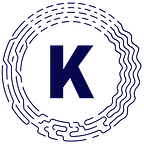The Major Risk No ICOs Are Talking About
Anyone with half an ear to the financial news has heard about the popularity and success of Initial Coin Offerings (ICOs) — an alternative form of crowdfunding via cryptocurrency. With an estimated $3.2 billion raised for ICOs in 2017, it’s obvious that something big is happening.
Businesses and investors love ICOs because it’s one of the easiest and most efficient methods for companies to fund projects and for individuals to invest in projects they see value in.
The promises made by ICOs are:
- Secure, transparent and democratic network through blockchain.
- The ability to address global issues in a comprehensive, decentralized fashion
- ICOs will use the blockchain trading platform and hence reduce the fees and inefficiencies traditionally associated with asset trading.
- Potential for high investment returns.
But because ICOs are outside the traditional financial system, there are some risks:
- No formal process to audit ICOs: due to a lack of regulation, companies conducting ICOs are not legally required to release any information on their latest developments. As a result, there’s always a risk that projects can get abandoned, underperform or fail to start.
- Volatility and uncertainty surrounding token price: oftentimes, a token price is calculated based on the possible resale profits, rather than the fundamental value or economic utilities of the original offering. That means, it’s very easy to manipulate token prices to increase personal profits.
These risks are, to a large extent, built into the model; high risk typically means high returns.
But the real risk of investing in a blockchain ICO is one that no one’s even bringing to the table:
Who is going to build these projects?
Depository Trust and Clearing Corporation (DTCC) CEO Mike Bodson says lack of qualified blockchain professionals is among his company’s top industry concerns, and others keeping an eye on the horizon are echoing these worries. Demand for freelance blockchain developers has doubled since last year, and is expected to continue to rise, says Computerworld.
According to Upwork, blockchain coding is #2 on the list of the 20 fastest-growing skills, outpacing demand for bitcoin-specific developers.
It’s certainly not hard to imagine blockchain as a “disruptive skill.” Projects backed by blockchain technology and funded via ICO show huge potential for making a huge positive global impact.
Despite the promises, though, there’s a real risk that there simply aren’t enough people to do the work. There are currently 14 open jobs for every blockchain engineer. Talented blockchain developers are commanding ever-increasing wages, upwards of $150 an hour, says Upwork, and full time developers are commanding starting salaries of $250,000 and beyond. With demand pushing project costs beyond original estimates, projects are being stalled and risk being abandoned because there aren’t enough bodies to do the work.
And with the huge popularity of blockchain-backed ICOs, the job market for experienced developers is expected to grow 16x in the next 7 years, says Grand View Research.
What does this mean for the blockchain industry? In the short term, companies will face the choice between hiring under-skilled employees, paying ever-escalating prices for proven talent, or putting blockchain-based projects on hold indefinitely.
To make sure this issue is addressed and the bright and exciting promise of a blockchain-enabled future is realized, companies need to find the right people and make sure they have the right training, right now.
What’s needed is a standardized curriculum, developed by an accredited institution with strong links to blockchain experts, to ensure quality, dependable, consistent training for future blockchain professionals.
Unless we see the education gap filled, the developer shortage will continue to grow, and the future of blockchain projects will be bleak.
Jason King is a Humanitarian Hacker, feeding the hungry as the Executive Director of Unsung.org. Known for running across the country to raise bitcoin for the homeless in 2014, King is a long-standing member of the crypto community and continues to solve to the sector’s most pressing problems as Co-Founder of Kingsland University — School of Blockchain, the world’s first university-accredited blockchain training program. Find out more about Kingsland’s leading-edge education at KingslandUniversity.com
Have questions? Ask the team on Telegram.
